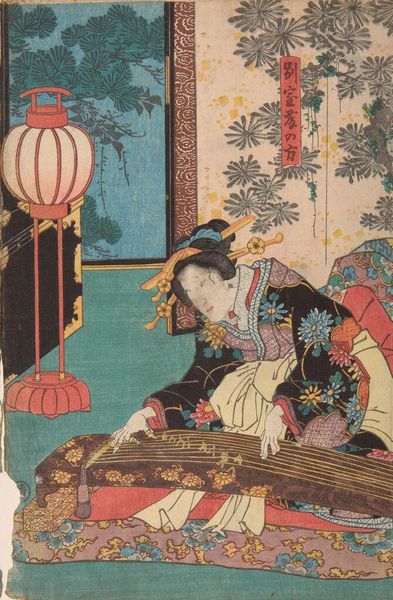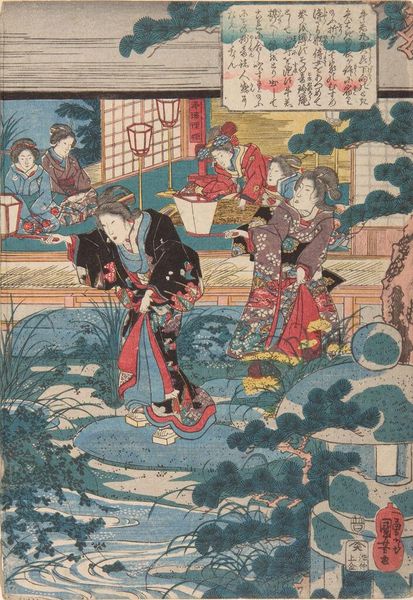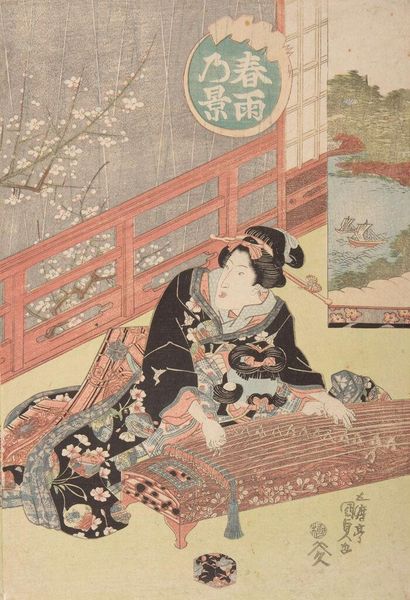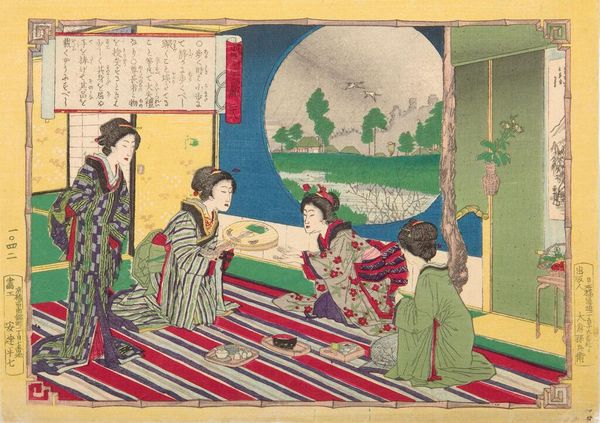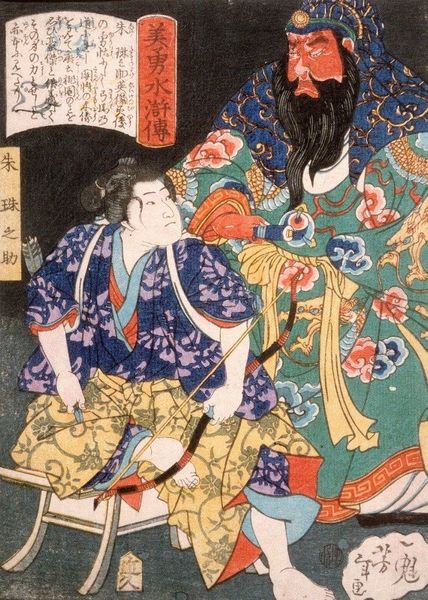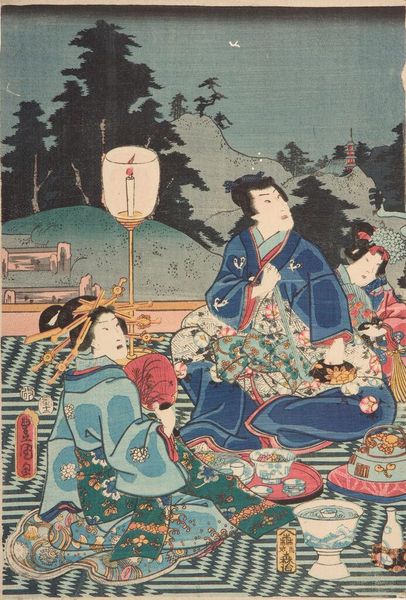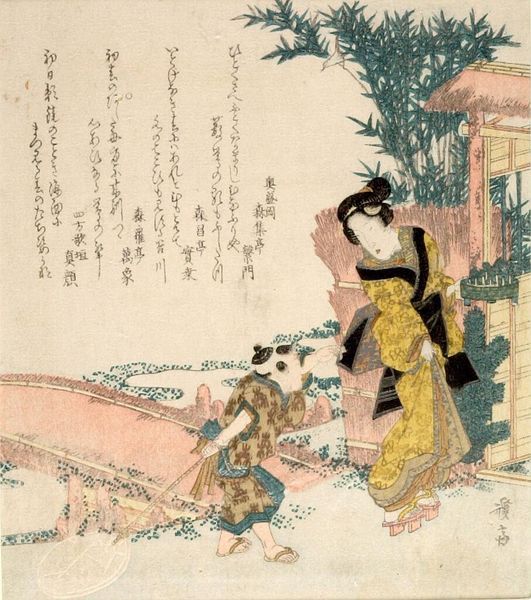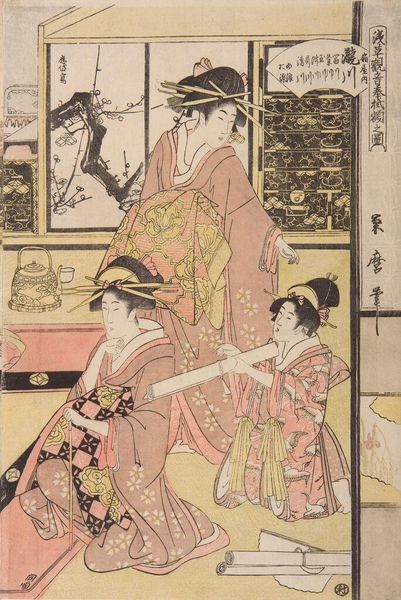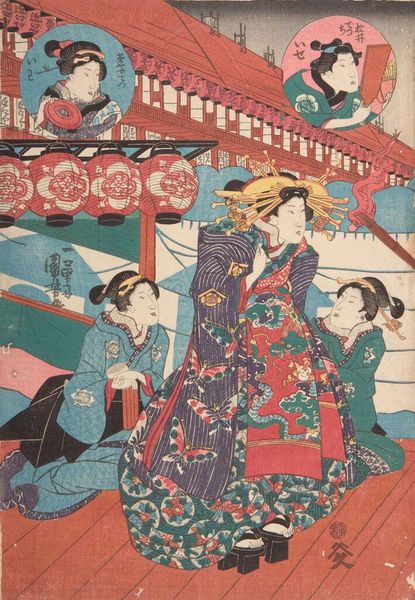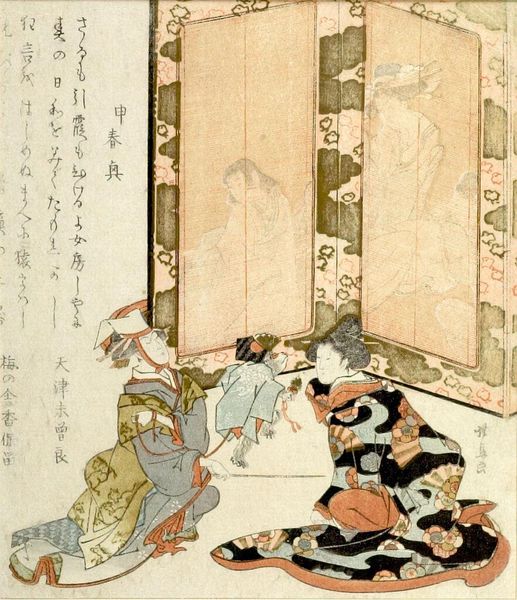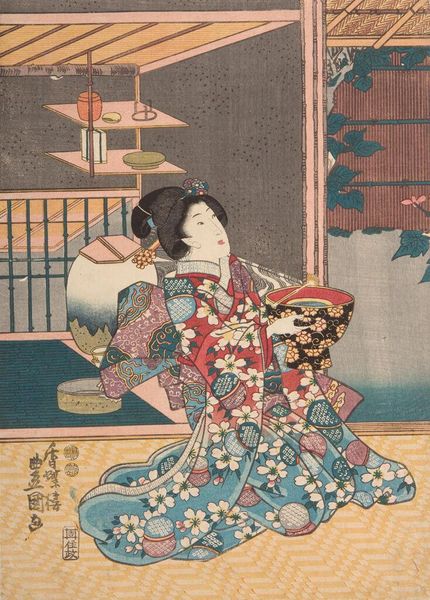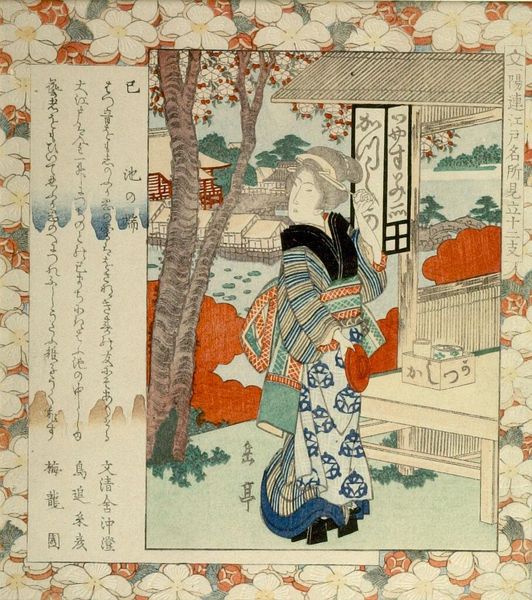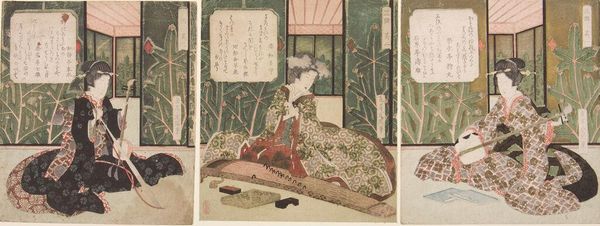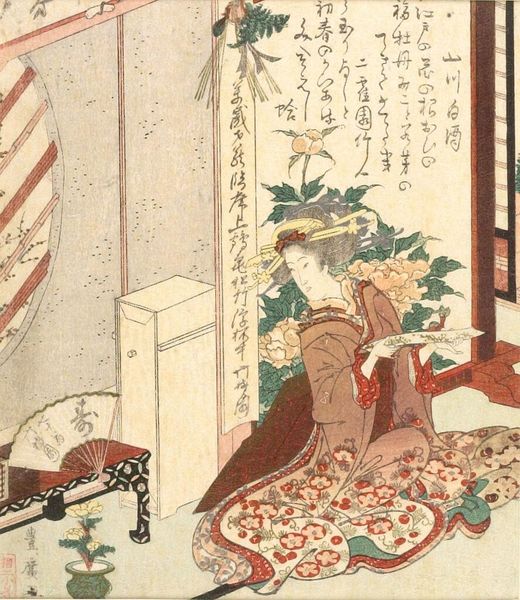
Actors in a scene from the play The Story of Cherry Blossoms on Higashiyama (Higashiyama sakura zÅshi): BandÅ HikosaburÅ IV as Ashikaga Yoshimasa kÅ, Azuma IchinojÅ I as Kashitsuki Sugibae (right sheet), Onoe KikujirÅ II as Besshitsu Fuji no kata (center sheet), unidentified actor as Koshimoto Kodemari, and Iwai KumesaburÅ III as Ashikaga JirÅ no kimi (left sheet) Possibly 1851 - 1858
0:00
0:00
Dimensions: Vertical Åban triptych: 35.5 x 71.7 cm (14 x 28 1/4 in.)
Copyright: CC0 1.0
Curator: This triptych, currently held at the Harvard Art Museums, presents actors in a scene from "The Story of Cherry Blossoms on Higashiyama." It’s a woodblock print by Utagawa Kunisada. The materiality alone, the flatness of the colors and the distinct key block, is so alluring. Editor: Alluring and also a little unsettling. There's a peculiar mix of opulence in the costumes and a kind of theatrical tension in the poses. The actors, frozen in this moment, carry a weight of narrative. Curator: Absolutely. Kabuki, with its exaggerated expressions and stylized gestures, aimed to convey complex emotions through symbolic language. Notice how the placement of hands or tilt of the head communicates volumes. Editor: And the patterned backgrounds—chrysanthemums, geometric lattices—almost flatten the space, emphasizing the actors’ roles as vessels of cultural memory. It’s a fascinating interplay between individual performance and established iconography. Curator: Indeed. Kunisada masterfully weaves together personal expression and traditional symbolism, reflecting both the individual actor’s interpretation and the play’s enduring themes. Editor: Reflecting also, perhaps, the enduring power of theatre to shape our understanding of history and identity, wouldn’t you agree?
Comments
No comments
Be the first to comment and join the conversation on the ultimate creative platform.
